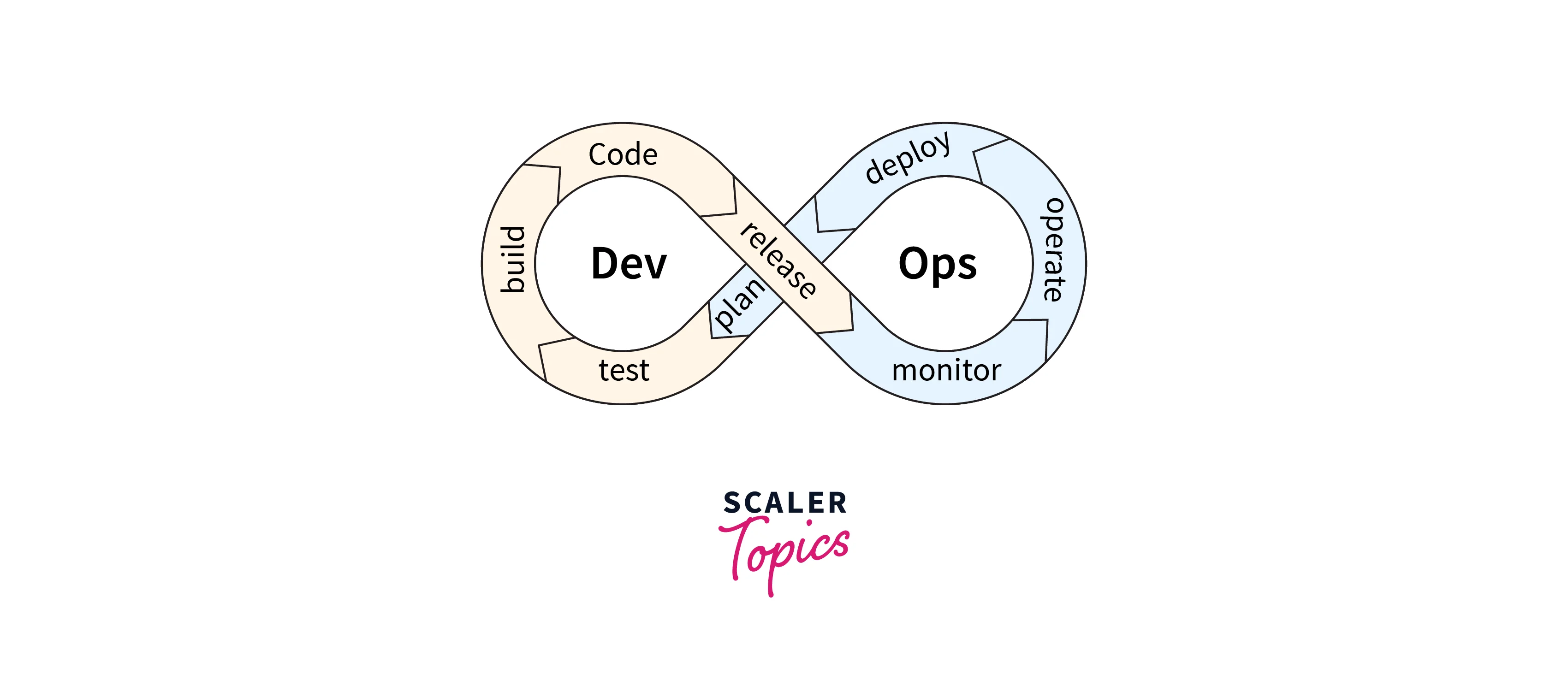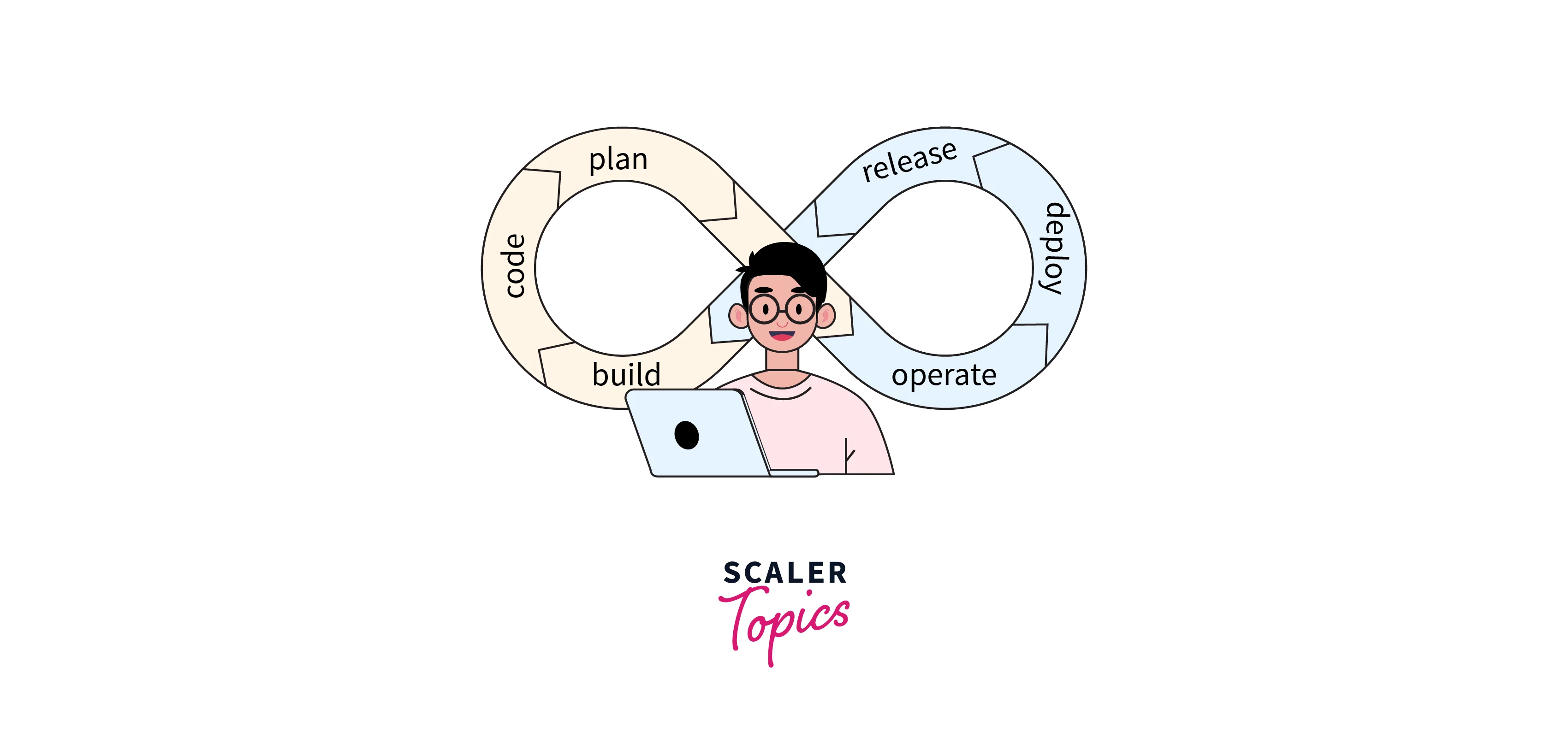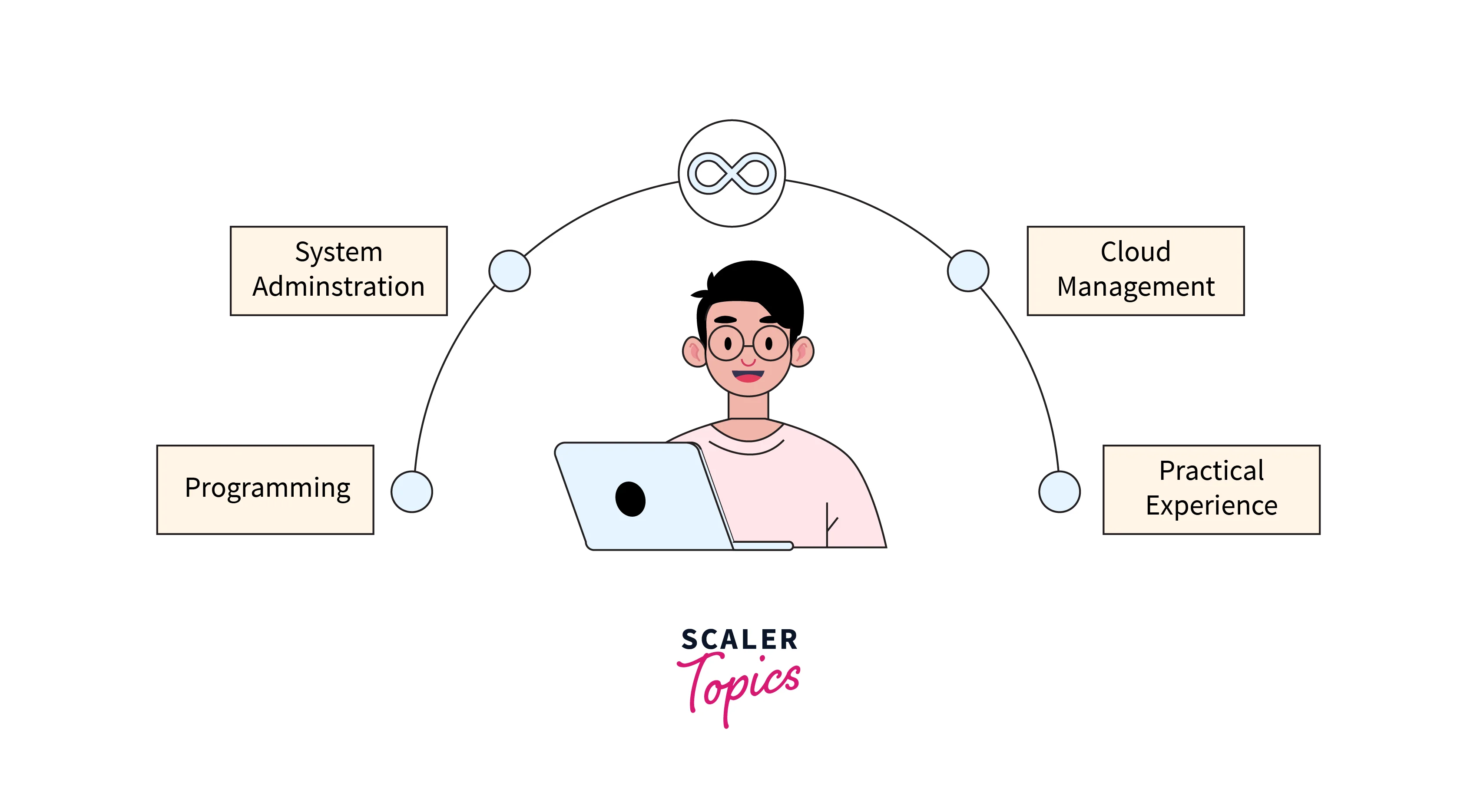DevOps Engineer Roles and Responsibilities
DevOps, stemming from experience and best practices, revolutionizes software development lifecycle management by integrating development, testing, and support processes. This methodology optimizes tools deployment, streamlines testing, and enhances productivity, emphasizing continuous integration and deployment. Historically, departments operated in silos, causing process gaps and conflicts. DevOps addresses these issues, fostering collaboration and efficiency. Organizations recognize the need for DevOps skills, offering dedicated courses to employees. Simultaneously, the widespread adoption of cloud technology transforms software development.
DevOps engineering emerges as a crucial role, bridging the gap between development and operations. DevOps engineers drive a streamlined and efficient development process, leveraging cloud flexibility for rapid software delivery in response to the escalating demand for high-performance web solutions in today's industry landscape.

What is a DevOps Engineer?
A DevOps Engineer works closely with the development and operations teams to ensure that the software development process is streamlined and efficient, resulting in faster delivery of high-quality software.
DevOps Engineers have a unique role in the software development process and are typically responsible for developing and deploying software applications. They are also responsible for the management of the entire lifecycle of the software project, including the development and testing, deployment, and ongoing maintenance.
DevOps Engineers are also responsible for the automation of software systems, which can be used to speed up the development and deployment processes. This automation requires the use of various DevOps tools, such as Puppet, Chef, and Ansible. DevOps Engineers are also responsible for ensuring that the software systems are running optimally and are secure.
DevOps Engineers are usually well-versed in software development best practices and can understand the complexities of software systems. They must also be able to communicate effectively with both the development and operations teams to ensure that the software system is running optimally and that any problems are quickly resolved.
Benefits of DevOps Engineer
- Gives Faster Delivery:
DevOps engineers can increase the speed of developing, testing, and deploying an application since they work on the entire software development life cycle. - Gives Quality Product:
DevOps engineers are responsible for the entire process, from creating the product to deployment and maintenance. This leads to improved quality of the product as well as better customer satisfaction. - Works Collaboratively:
DevOps engineers work in a collaborative environment which ensures that all the stakeholders of the project are on the same page and working towards a common goal. - Reduce The Costs:
DevOps engineers can reduce costs by automating processes and using the latest technologies. This helps the organization save money in the long run. - Improves Scalability of Product:
DevOps engineers can scale up or down the infrastructure as needed to ensure that the application is running optimally. This helps the organization to remain competitive in the market.
DevOps Engineer Job Description
The DevOps Engineer Job Description outlines the DevOps Engineer roles and responsibilities, and required skills. This Job Description typically includes responsibilities such as designing and implementing automated deployment and testing pipelines, developing and maintaining infrastructure as code, and troubleshooting production issues.
The Job Description will often include required technical skills, such as experience with Infrastructure Automation Tools like Ansible, Puppet, or Chef, knowledge of Cloud Computing platforms like AWS, Azure, or Google Cloud, and proficiency in scripting languages like Python, Ruby, or Bash. Interpersonal skills such as excellent communication, collaboration, and problem-solving skills may also be listed.
The DevOps Engineer Job Description may also outline the expected work environment, such as a fast-paced, Agile development environment, and a willingness to work outside regular business hours to support production systems. The concept of providing production support is termed as on-call or on-duty that a particular devops team follows on a rotation basis to provide smooth functioning of production.
Overall, the DevOps Engineer Job Description reflects the importance of this role in modern software development and a clear understanding of the skills and responsibilities required for success in this role.
DevOps Engineer Roles and Responsibilities
A DevOps Engineer is a link between software development and IT operations. They are responsible for designing, implementing, and maintaining the software development process and ensuring that the software is deployed efficiently and reliably.
The DevOps Engineer roles and responsibilities may include:
- Automation:
DevOps Engineers are responsible for automating as much of the software development process as possible. This includes automating code testing, building, deployment, and monitoring. Automation helps to reduce errors and improve the efficiency of the software development process. - Infrastructure as Code:
DevOps Engineers are responsible for developing and maintaining the infrastructure as code. They use tools like Ansible, Puppet, or Chef to manage infrastructure, and they work with cloud computing platforms like AWS, Azure, or Google Cloud. - Continuous Integration and Delivery:
DevOps Engineers are responsible for implementing and maintaining Continuous Integration and Continuous Delivery (CI/CD) Pipelines. This involves automating the building and testing of code, ensuring that the software is always in a releasable state. - Monitoring and Troubleshooting:
DevOps Engineers are responsible for monitoring the software development process and identifying and resolving issues. They use tools like Prometheus, Grafana, or Datadog to monitor the health of the system, and they work with developers to troubleshoot issues. - Collaboration:
DevOps Engineers work closely with development and operations teams to ensure that the software development process is collaborative and efficient. They communicate with stakeholders and ensure that everyone is aligned with the goals of the project. - Security:
DevOps Engineers are responsible for ensuring that the software development process is secure. This includes implementing security measures throughout the software development lifecycle, conducting security audits, and ensuring that security policies and procedures are followed.

Essential Skills for a DevOps Engineer
DevOps is an approach to software engineering that combines software development with operations, typically to enable faster delivery of software and services. DevOps engineers are responsible for managing the development, deployment, and maintenance of software applications and services. As such, they need to possess a wide range of skills to be successful.
Here are some Essential Skills required for a DevOps Engineer:
- Automation Skills:
DevOps Engineers should have strong automation skills, including experience with scripting languages such as Python, Ruby, or Bash, and automation tools like Ansible, Puppet, or Chef. They should be able to automate the software development process as much as possible to reduce errors and improve efficiency. - Cloud Computing Skills:
DevOps Engineers should be proficient in cloud computing platforms like AWS, Azure, or Google Cloud. They should have experience with designing and maintaining cloud-based infrastructure, including networking, storage, and security. - Containerization Skills:
DevOps Engineers should be familiar with containerization technologies like Docker (Docker is a platform for developing, packaging, and deploying applications in containers) and Kubernetes (Kubernetes is an open-source container orchestration platform for automating deployment, scaling, and management of containerized applications). They should be able to create and manage container-based deployments and troubleshoot issues. - Continuous Integration and Delivery (CI/CD) Skills:
DevOps Engineers should be experienced with implementing and maintaining CI/CD pipelines. They should have a good understanding of the software development process and be able to automate code testing, building, deployment, and monitoring. - Monitoring and Troubleshooting Skills:
DevOps Engineers should be able to monitor the software development process and identify and resolve issues quickly. They should have experience with monitoring tools like Prometheus, Grafana, or Datadog and be able to troubleshoot issues with developers. - Collaboration Skills:
DevOps Engineers should be able to work collaboratively with development and operations teams. They should have excellent communication and problem-solving skills and be able to foster a culture of collaboration and efficiency. - Security Skills:
DevOps Engineers should be able to ensure that the software development process is secure. They should have experience with implementing security measures throughout the software development lifecycle, conducting security audits, and ensuring that security policies and procedures are followed. - Orchestration:
DevOps engineers should be able to orchestrate complex, distributed systems to ensure that all components of the system are functioning correctly. - Communication Skill:
DevOps Engineer should possess excellent communication skills. They should be able to collaborate with development and operations teams to identify and resolve issues, and they should be able to communicate the status of the software development process to stakeholders effectively.
DevOps Engineer Salary
DevOps Engineer is known as one of the most highly paid job roles in the world. DevOps Engineer's Salary depends on multiple factors like company, skills, role, responsibility, geography, etc.
The salary of a DevOps Engineer can vary depending on several factors, including experience, location, and industry. According to salary data from Glassdoor, the average salary for a DevOps Engineer in the United States is around $110,000 per year, but it can range from $76,000 to $157,000 depending on location and experience level.
The salary of a DevOps Engineer can also vary by industry. According to data from Indeed, the highest-paying industries for DevOps Engineers are finance, healthcare, and technology. The average salary for a DevOps Engineer in the finance industry is around $133,000 per year, while in healthcare it is around $128,000 per year, and in technology, it is around $120,000 per year.
DevOps Engineers with more experience can typically command higher salaries. According to data from PayScale, the average salary for a DevOps Engineer with years of experience is around $88,000 per year, while those with years of experience can earn around $114,000 per year. Those with years of experience can earn an average of $125,000 per year.
DevOps Training and Skill Development
DevOps is a rapidly growing area, and there is a high demand for skilled DevOps Engineers in the world. To meet this demand, many training and skill development programs have emerged to help individuals gain the necessary skills and knowledge to become successful in this field.
Here are some of the training and skill development options available for aspiring DevOps Engineers:
- Online Courses and Certifications:
Many online platforms, such as Udemy, Coursera, and edX, offer courses and certifications in DevOps. These courses cover topics such as automation, cloud computing, containerization, and CI/CD, among others. Completing these courses and certifications can help individuals gain the necessary skills and knowledge to become DevOps Engineers. - Bootcamps:
DevOps boot camps are intensive training programs that cover various topics related to DevOps, including automation, cloud computing, containerization, and CI/CD. These boot camps are typically short-term, ranging from a few weeks to a few months, and are designed to provide individuals with hands-on experience in DevOps. - Conferences and Workshops:
Attending DevOps conferences and workshops are an excellent way to gain exposure to the latest trends and technologies in the field. These events provide opportunities for networking and learning from experienced DevOps practitioners. - On-The-Job Training:
Many organizations offer on-the-job training for individuals interested in becoming a DevOps Engineer. These training programs typically involve working alongside experienced DevOps Engineers and gaining hands-on experience in automation, cloud computing, containerization, and CI/CD. - Open Source Contributions:
Contributing to open source projects is an excellent way to gain experience and demonstrate skills in DevOps. Open source projects provide opportunities to work on real-world projects and collaborate with experienced DevOps practitioners.
Empower Your Career with DevOps Expertise! Enroll in Our DevOps Certification Course and Navigate the Future of Continuous Integration and Delivery.
Conclusion
- DevOps is used to create a culture of collaboration, automation, and continuous improvement that results in faster and more reliable software delivery.
- A DevOps engineer is responsible for the automation of the software development lifecycle, from code building to deployment and monitoring.
- The DevOps Engineer Job Description outlines the DevOps Engineer roles and responsibilities, and required skills.
- DevOps Engineer Roles and Responsibilities include Automation, IaC, CI and CD, Monitoring, Troubleshooting, Collaboration, Security, etc.
- Essential skills required for DevOps Engineer include Cloud Computing Skills, Containerization Skills, CI/CD Skills, Monitoring and Troubleshooting Skills, Collaboration Skills, Security Skills, Communication Skills, etc.
- DevOps Engineer Salary ranges from $76,000 to $157,000 depending on location and experience level.
- There are many training and skill development options like Online Courses, Certification, Training, etc. available for individuals interested in becoming DevOps engineers.
